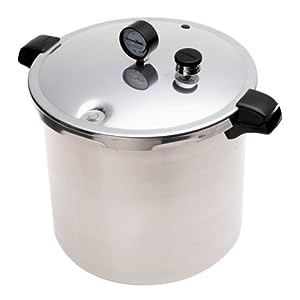tlazaroff
Well-Known Member
Hi all.
I had a question in which search didn't pull any information on. I am curious about canning wort for using in starters at a later date. I know when you can fruits and such, it stays preserved for up to a year. I was wondering if there are any special steps needed to take when canning wort, or if it's done the same way.
I plan to make a large 4-gallon batch of wort for use in starters, then can it in 1-liter segments so I can make 1 to 2 liter starters at anytime during the year. I figure it saves time doing it this way.
Any insight would be great!
-Tim
I had a question in which search didn't pull any information on. I am curious about canning wort for using in starters at a later date. I know when you can fruits and such, it stays preserved for up to a year. I was wondering if there are any special steps needed to take when canning wort, or if it's done the same way.
I plan to make a large 4-gallon batch of wort for use in starters, then can it in 1-liter segments so I can make 1 to 2 liter starters at anytime during the year. I figure it saves time doing it this way.
Any insight would be great!
-Tim




